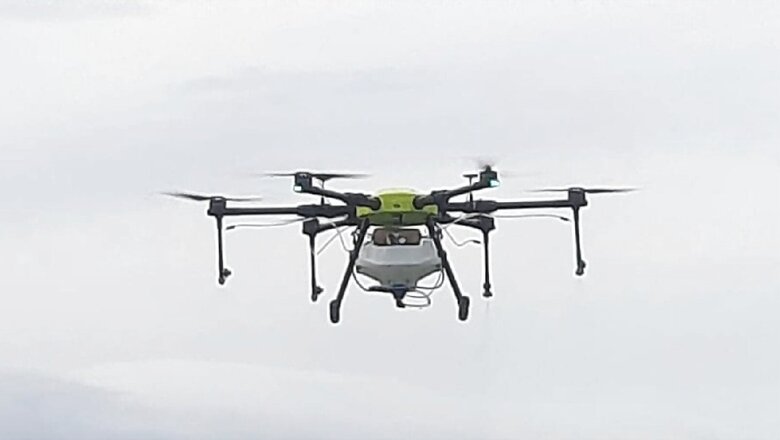
views
Drones carrying drugs, arms and ammunitions from Pakistan have become a big threat to India’s security agencies, and the BSF, which guards the most sensitive Indo-Pak border, is struggling with insufficient and flawed anti-drone systems.
According to sources, guarding long borders of Punjab and Jammu with a few anti-drone systems, which have limitations in direction, range and detecting other drones, especially smaller ones, are giving tough time to the BSF troops. In case of any suspicious activity detected, the systems require manual interventions.
The BSF troops have to put these systems from one place to another frequently as per the information received and suspicion of drone movements from Pakistan.
“We don’t have a sufficient number of systems to cover even 10% of the area at one point in time. We have to change their placement at frequent intervals and install them again and again as there is an acute shortage of anti-drone systems. Another issue is with the limitations and flaws, which make them almost counterproductive. Our men, manually, day and night, keep a check but for it is not foolproof for such long border areas,” a senior BSF official told News18.
When News18 sought a reply to the queries sent to the BSF about the shortage of anti-drone systems and their limitations, the official, who didn’t wish to be named, said, “We are aware of the shortage of anti-drone systems, their limitations and flaws. The process of getting more such systems is in the pipeline and will be purchased soon.”
The documents accessed by News18 revealed that current systems have a very limited range, and they sometimes miss movements or suspicious objects. Also, they have to be placed in the right direction with an accurate angle to work efficiently. Drones moving at a particular height can’t be detected by these systems which is extremely low.
The BSF has informed the manufacturers about the systems’ flaws and limitations so that they can be improved. “We have apprised the Indian companies who have manufactured these anti-drone systems time to time about the flaw and try to get them sorted but machines have technical issues,” the official said.
The reason for the delay in purchasing a new anti-drone system is because top BSF officials are not convinced about the latest system and they are unable to fulfil the requirements of the troops, sources said.
“The delay in purchasing new systems is because they are not fulfilling the requirements. During the trial overview by a committee comprising top officials, these systems were found with similar limitations. The companies are now coming up with solutions and soon almost thrice of the current strength of these systems will be purchased.”
The BSF DG had earlier said small Chinese drones, carrying narcotics in 95% of cases, are flying over the border into Punjab and Jammu regions, and these flights are a “cause of concern” for which technology solutions are being scouted actively. Talking to reporters on the eve of the 57th Raising Day of the paramilitary, the BSF head said at least 67 drone sightings have been made this year now along India’s western border with Pakistan last year.
“Right now, the frequency of drones that are coming to our country is fairly small and these are by-and-large Chinese-made drones…they are very good…and carrying small payloads and in 95% cases they are carrying drugs.”
“We have installed some kind of anti-drone systems at the border and they are working fairly ok but we are in the process of getting more and more technology,” DG Singh had said.
According to reports, the Delhi Police Special Cell has found that massive weapons and ammunition were brought in from Pakistan through drones. Pakistan-based gangsters helped local criminals in procuring sophisticated weapons specially AK series assault rifles.
Read all the Latest News , Breaking News , watch Top Videos and Live TV here.




















Comments
0 comment